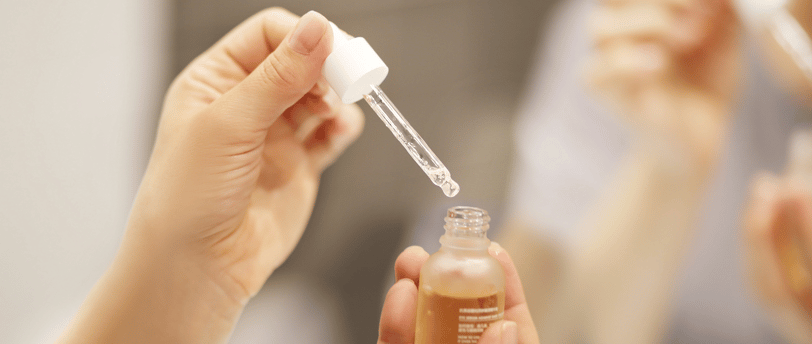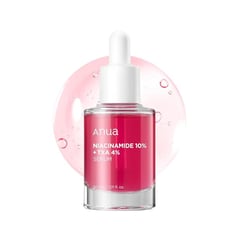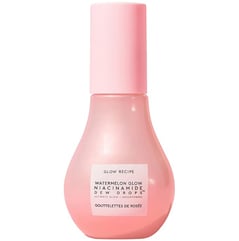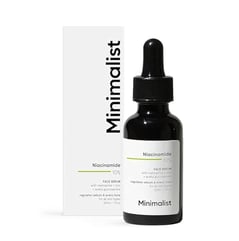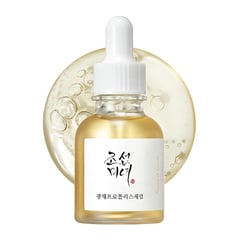What is Niacinamide?
Niacinamide, also known as nicotinamide, is a water-soluble form of Vitamin B3, an essential nutrient that plays a critical role in maintaining overall health. It is a part of the B-complex vitamins, which are necessary for converting food into energy and supporting the proper functioning of various bodily systems. Among its many functions, niacinamide is particularly notable for its impact on skin health, making it a popular ingredient in modern skincare products.
In the context of skincare, niacinamide offers a wide range of benefits. It is renowned for its anti-inflammatory properties, which can help soothe irritated skin and reduce redness. This makes it particularly useful for individuals dealing with conditions such as acne, rosacea, and eczema. Furthermore, niacinamide has been shown to regulate sebum production, which can aid in managing oily skin and preventing breakouts. Niacinamide stimulates the synthesis of ceramides, which are lipids that help maintain the skin’s barrier function, thereby preventing moisture loss and protecting against environmental damage.
Another key advantage of niacinamide is its ability to improve the appearance of enlarged pores and uneven skin tone. By promoting the turnover of skin cells and enhancing the skin’s natural renewal process, niacinamide helps to smooth out the texture and enhance the overall radiance of the complexion. It also possesses antioxidant properties, which protect the skin from oxidative stress caused by free radicals.
Given its versatility and efficacy, niacinamide has become a staple in many skincare formulations. It can be found in a variety of products, including serums, moisturizers, and cleansers, often combined with other active ingredients to enhance its beneficial effects. Whether you are looking to address specific skin concerns or simply maintain healthy, glowing skin, incorporating niacinamide into your skincare routine can offer substantial benefits.
Benefits of Niacinamide
1. Reduces Inflammation
Niacinamide is known for its anti-inflammatory properties, making it an excellent choice for those with sensitive skin, acne, or rosacea.
2. Improves Skin Barrier Function
It helps strengthen the skin’s barrier, leading to improved moisture retention and reduced dryness and flakiness.
3. Minimizes Redness and Blotchiness
Regular use can reduce redness and blotchiness, resulting in a more even skin tone.
4. Regulates Oil Production
Niacinamide can help regulate oil production, making it beneficial for both dry and oily skin types.
5. Protects Against Sun Damage
It can help repair DNA damage caused by UV rays, offering some level of protection against sun damage.
6. Reduces Hyperpigmentation
Niacinamide can help lighten dark spots and hyperpigmentation, giving the skin a brighter appearance.
7. Minimizes Fine Lines and Wrinkles
It boosts collagen production, which helps in reducing the appearance of fine lines and wrinkles.
Who Should Use Niacinamide?
Niacinamide is suitable for all skin types, including sensitive skin. It is particularly beneficial for those with:
Acne-prone skin
Rosacea
Aging skin
Hyperpigmentation issues
Oily skin
When Should One Use Niacinamide?
Niacinamide can be used both morning and night. In the morning, it can provide protection against environmental damage, and at night, it can aid in skin repair and regeneration.
How to Incorporate Niacinamide into Skincare Routine
Cleanser: To begin, clean your face to remove any dirt, oil, or makeup. Use a gentle cleanser that will not strip your skin's natural oils. You can also use an oil cleanser followed by a water-based cleanser. You may also like - Unlock Radiant Skin: Double Cleansing for All Skin Types
Toner: Follow with a toner to balance your skin’s pH. (Optional)
Niacinamide Serum: Apply a niacinamide serum after toning.
Moisturizer: Follow up with a moisturizer to lock in hydration.
Sunscreen (AM): Always apply sunscreen in the morning after your moisturizer.
What Not to Do with Niacinamide
Avoid Mixing with Vitamin C: Although some studies suggest they can be used together, some people may experience skin irritation.
Don’t Overuse: Stick to the recommended amount to avoid potential irritation.
Patch Test: Always perform a patch test before incorporating a new niacinamide product into your routine to ensure it doesn’t cause an adverse reaction.
Don't Use with Exfoliating Ingredients: Niacinamide can increase skin sensitivity, so it's best to avoid using it with exfoliating ingredients such as salicylic acid and glycolic acid. (AHAs/BHAs)
How to Incorporate Niacinamide into Your Skincare Routine
Cleanser: To begin, clean your face to remove any dirt, oil, or makeup. Use a gentle cleanser that will not strip your skin's natural oils. You can also use an oil cleanser followed by a water-based cleanser. You may also like - Unlock Radiant Skin: Double Cleansing for All Skin Types
Toner: Follow with a toner to balance your skin’s pH. (Optional)
Niacinamide Serum: Apply a niacinamide serum after toning.
Moisturizer: Follow up with a moisturizer to lock in hydration.
Sunscreen (AM): Always apply sunscreen in the morning after your moisturizer.
Side Effects of Niacinamide
Niacinamide is generally well-tolerated, but some individuals may experience:
Mild irritation
Redness
Itching
If you experience severe reactions, discontinue use and consult a dermatologist.
Recommended Products:
Contains 10% Niacinamide, 4% Tranexamic Acid and 2% Arbutin, Ceramide, Hyaluronic Acid, Vitamin B12
Contains Hyaluronic Acid, Watermelon with Niacinamide
Contains 10% Niacinamide, Zinc, Hyaluronic Acid, EUK-134 (provides continuous antioxidant support, leaving the skin looking brighter)
Amazon Link to buy - Minimalist 5% Niacinamide Face Serum (Lower Concentration)
Contains 60% Propolis, 2% Niacinamide, 0.5% BHA
propolis and the essence of niacinamide, provides a nourishing and anti-aging boost.
Note : due to the presence of BHA, sunscreen is a must when applied during the daytime.


